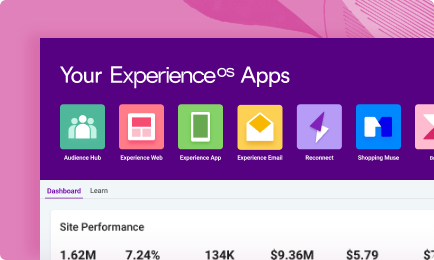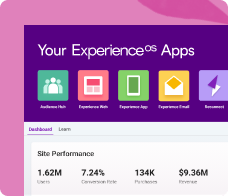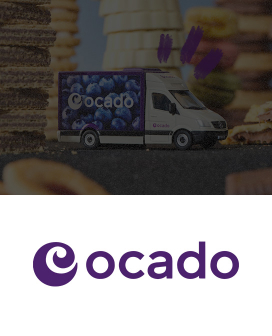Comply with GDPR using Dynamic Yield’s cookieless consent solution
As data and user privacy regulations continue to roll out across the globe, businesses must start relying on solutions that simplify the path to compliance and foster a sense of trust with consumers.
Using cookies to tailor experiences based on behavioral data has become the norm these days as brands aim to connect with consumers on a more personal level and influence purchase decisions. But with the latest restrictions under the EU’s GDPR, companies who handle the personal data of European citizens must now receive consent before tracking their activity for the purposes of marketing and personalization.
Today, however, only 7% of sites comply with this current legal mandate, according to research from the Ruhr-University Bochum and the Institute for Internet Security. And as Deloitte research shows 73% of visitors are open to sharing personal data once they have confidence in a brand compared to 57% of consumers who are dissatisfied or unaware, it’s time marketers start placing a premium on trust.
In the rest of this post, we’ll walk through how brands can more easily comply with the regulations set forth as well as continue to ensure a positive customer experience for opted-out users.
Understanding consent – it’s mandatory
Many website owners continue to operate under the notion that if a visitor fails to respond to a consent pop-up either by scrolling past it or closing it out, their consent is assumed or inferred. This is in direct breach of GDPR, which states that clear affirmative action must be taken on the part of the visitor before their personal data can be collected and processed.
In a nutshell, this means consent must not be assumed but active.
The issue with most consent mechanisms
They often depend on cookies, which is also directly in breach of GDPR guidelines as it allows technology providers to use these cookies (or place new ones) to perform certain A/B tests or run context-based personalization campaigns before consent is gained.
So, how can teams guarantee no data is collected on a user unless they’ve actively opted-in?
Dynamic Yield’s “No Consent, No Cookies” solution
With our out-of-the-box solution, companies can ensure compliance by automatically blocking user activity tracking until consent is provided, without the use of cookies – a first in the A/B testing and personalization market. This comes as an alternative to implementing Dynamic Yield’s set of eXPerience APIs.
It’s important to note that as brands grow more conscious of privacy and begin adopting technologies to ensure compliance, the number of opted-out users is sure to rise. Despite this, brands can continue to deliver better digital experiences to this segment of traffic. In fact, Dynamic Yield’s many powerful A/B testing, optimization, and recommendation capabilities can still be utilized to enrich the default site experience for opted-out users based on anonymous contextual data such as location, URL, device type, channel, and more.
Additionally, brands will still be able to optimize as they’ve become familiar for those who have actively opted-in, tailoring their experiences based on information such as past purchase behavior, browser activity, product affinities, and more.
Use cases for enhancing the opted-out user experience
Many successful digital interactions don’t rely on consumer behavioral data, and our new “No Cookies, No Consent” solution allows for the creation of safe but positive interactions for users who have not consented by specifically targeting opted-out users.
Below, we’ll highlight a few highly effective use cases brands can deploy to nurture relationships with these folks in hopes of obtaining their information through a conversion event or explicit consent via a cookie popup.
Serve context-aware product recommendations
35% of Amazon sales are solely attributed to its on-site recommendations, proving they are key to the online shopping experience. And although the retail giant does utilize personalized algorithms, many of Amazon’s recommendation strategies are powered by contextual-based models. These are product recommendations that render according to the context of a consumer in that current moment in time (i.e. browsing a category or product detail page) and include algorithms such as “Similar Items” “Bought Together” and “View Together,” to name a few.
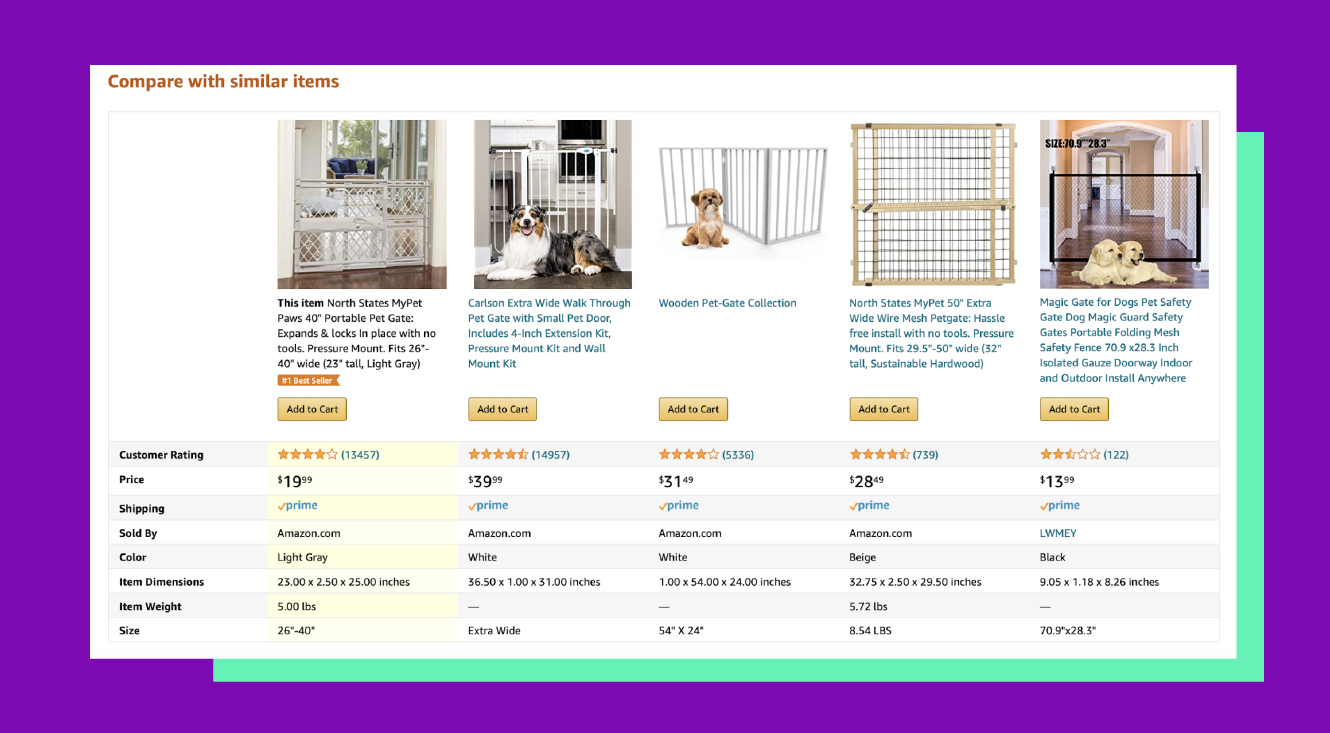
A recommendation widget targeting opt-out users visiting the product detail page using the Similar recommendation algorithm.
Capture users attention and push them to act now with creative promotions
With numerous coupons targeted to site visitors, many become lost in the noise as there is no sense to act on them. By applying urgency tactics such as a countdown timer, promotions become top-of-mind and encourage users to act immediately. No one wants to be left out on a good deal, and by offering promotions and deals in a creative way site visitors will be more inclined to be engaged and act upon it.
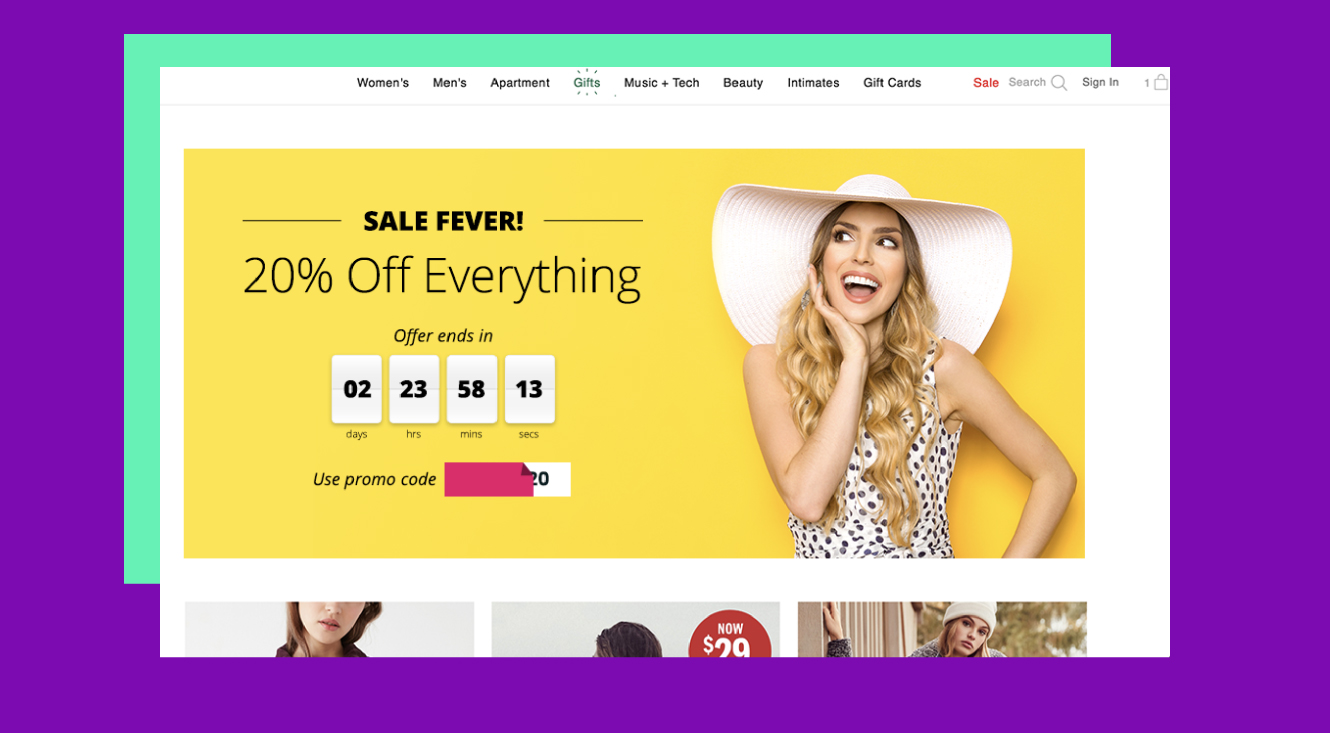
Serve countdown timers to promote time-sensitive offers and campaigns.
Additionally, marketers can use gamification experiences like “scratch-off” overlays or “wheel of fortune” spinners to differentiate from other deals and grab the attention of visitors.
Provide visitors with the confidence to make a choice
Shoppers are more inclined to buy products if they know it is popular, this is especially true for uncertain customers who find comfort in a greater collective – if everyone is buying it, then they should buy it too. Showing site visitors the product’s popularity in terms of views and purchases creates trust and reassures users they are making the right choice at a critical funnel step.
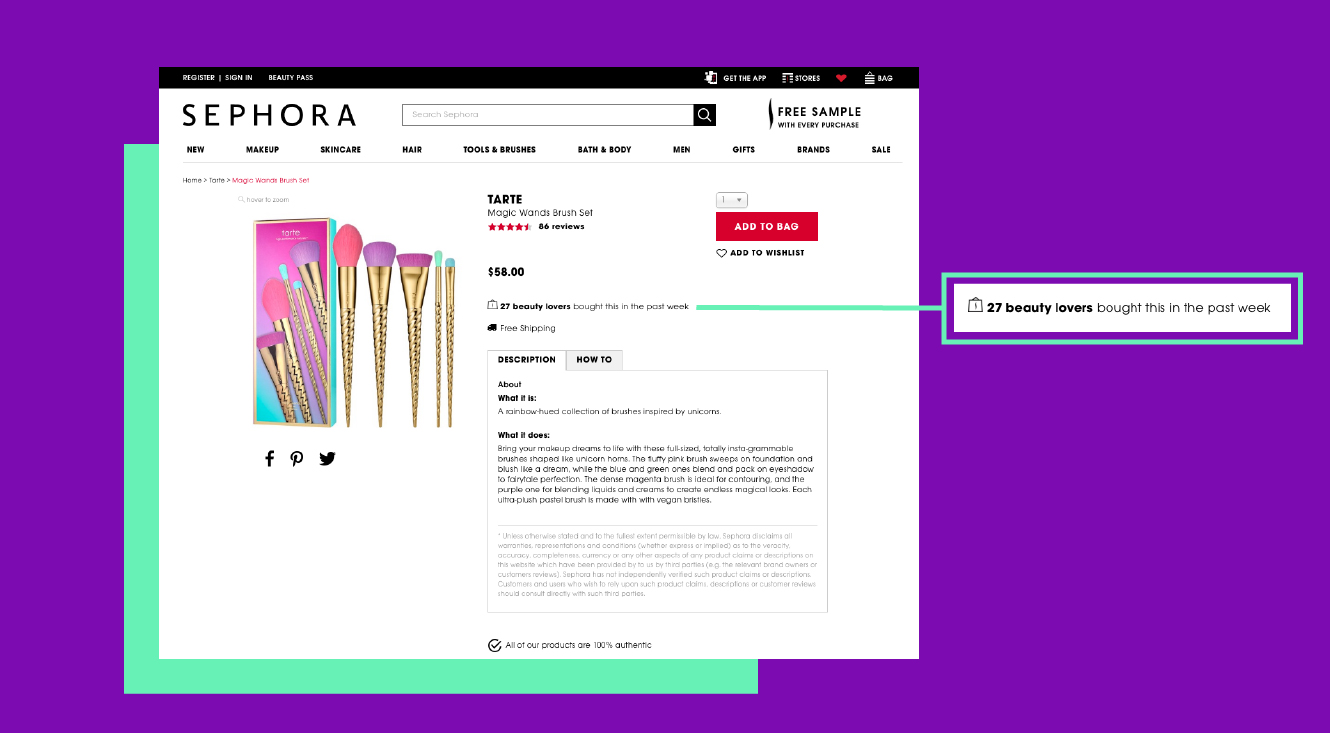
Display a social proof message based on product views or purchases on a product page.
The ultimate CX is built on trust
Data privacy and regulation are here to stay, and while some may worry about its impact on personalization, in the end, the only difference will be that data collection is done so with integrity. With Dynamic Yield’s “No Consent, No Cookie” solution, we enable brands to ensure only information gained with the appropriate permission makes its way into experience optimization efforts.
To learn more about balancing personalization with privacy, watch our virtual event on cookie consent (no form fill required) with data privacy experts at Dynamic Yield and Akarion. And if you have any more questions about our GDPR and privacy measures, visit this page.
